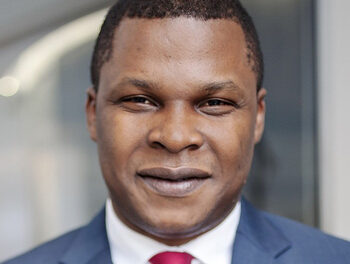
Experiencing wellness while travelling

By Dr Penehafo Shindume
Naturopathic Doctor and Founder of Happy Health.
Wellness tourism is travel to promote health and well-being through physical, psychological, or spiritual activities. Wellness tourism is growing in traction around the world, but what is wellness tourism and why is it becoming so popular? This is a gap in the market in Namibia and Happy Health has embarked on its journey to provide the perfect Tourism Wellness in Namibia.
Activities for Tourism Wellness may be spiritual, physical, or psychological, but they will all promote health in some way. Wellness tourism is all about travel that is focused on maintaining or improving someone’s well-being. This may be physical or mental; there are different types of wellness. These activities may be spiritual, physical, or psychological, but they will all promote health in some way. Happy Health’s primary focus is on holistic well-being by improving chronic illnesses through alternative medicines, physical exercise, nutrition, and psychological
improvements. But in a twist of promoting its core function, there is no better way to instill this through such a platform.
As wellness tourism is growing fast globally, Happy Health wants to pioneer this type of tourism in Namibia. Namibia is a well-known tourist destination. However, Happy Health wants to move away from the typical sun, sea, and sand package holiday model that has been the focus of travel for many people throughout the years, towards more alternative types of tourism such as Wellness Tourism. Alongside this, there is an increased awareness and importance that has been placed upon well-being in general throughout society people are more health conscious than they have ever been before and this is reflected in tourists’ holiday choices.
The global pandemic has forced us to prioritize our health, and it has encouraged us as Namibians to visit our corners of the country as tourists and for visitors to embrace the more relaxed restrictions and make it worthwhile. Therefore, escalating mental and physical solutions to well-being through tourism wellness comes at the most opportune time for us all to prioritize and respect this form of self-care.
Apart from holistic wellness, this also helps preserve cultural traditions in certain parts of the world. It also means that the locals can introduce these practices to others. This ensures that people are always learning about, and taking an interest in, different cultures. Happy Health advocates local products, natural products, and remedies that have been practiced for decades in Namibia to self-heal in the most natural way possible.
This is Happy Health’s niche that will separate it from other wellness retreats. Hence, why an element of its wellness retreat calls on global participation. There are two categories fostered by Happy Health which include primary wellness. Primary wellness tourism is when someone’s whole trip is focused on wellness; it is their sole reason for travel and the major component of their trip. Every aspect of their holiday is tailored to wellness. There is a latter Secondary wellness tourism whereby general tourists incorporate some aspect of wellness (a massage on the beach
during an all-inclusive vacation) into their holiday. Statistically, primary wellness tourists spend 178% more than your average tourist does, domestically – and 53% more internationally.
In conclusion, why not take time to further understand what Happy Health is about by following our social handles today @happyhealthnam. Various Tourism Wellness packages that we offer include meditation retreats, yoga retreats, spa breaks, healthy eating breaks, weight checks, writing retreats, and much more.
Contact us today at [email protected] to give you that tourism wellness first-hand experience.













































